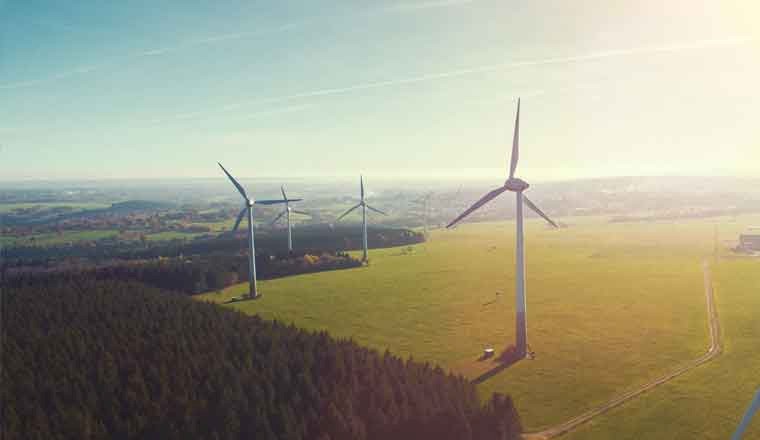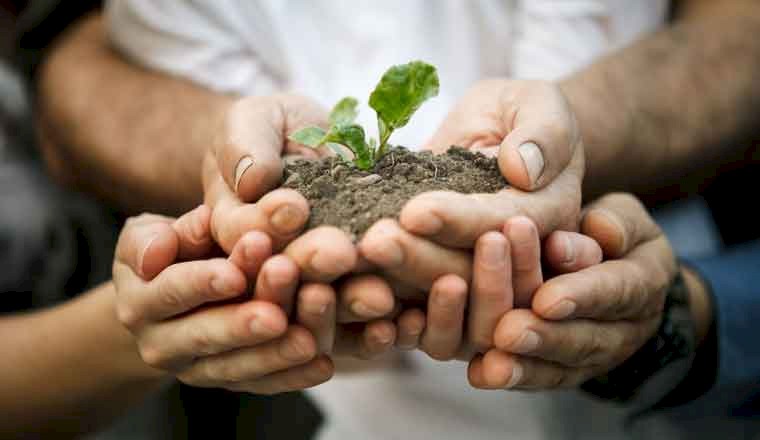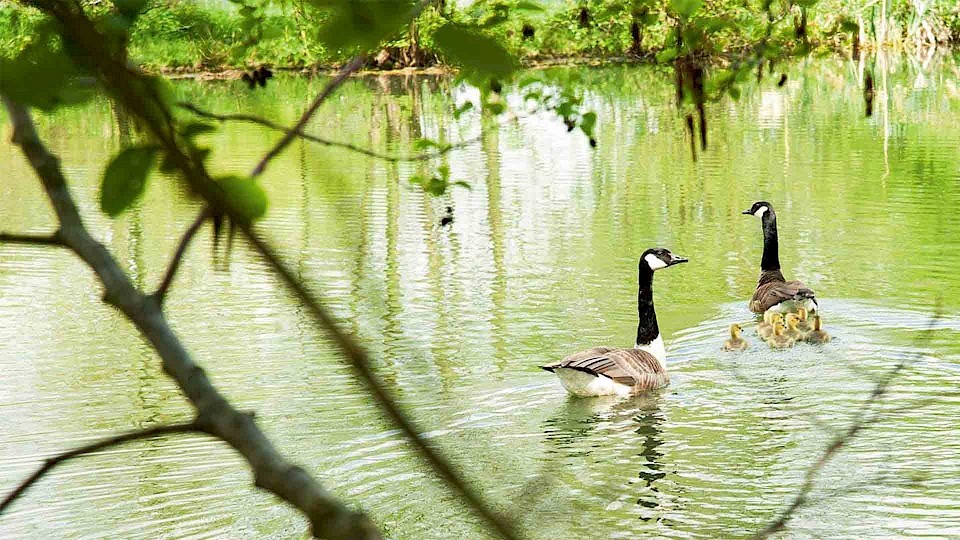
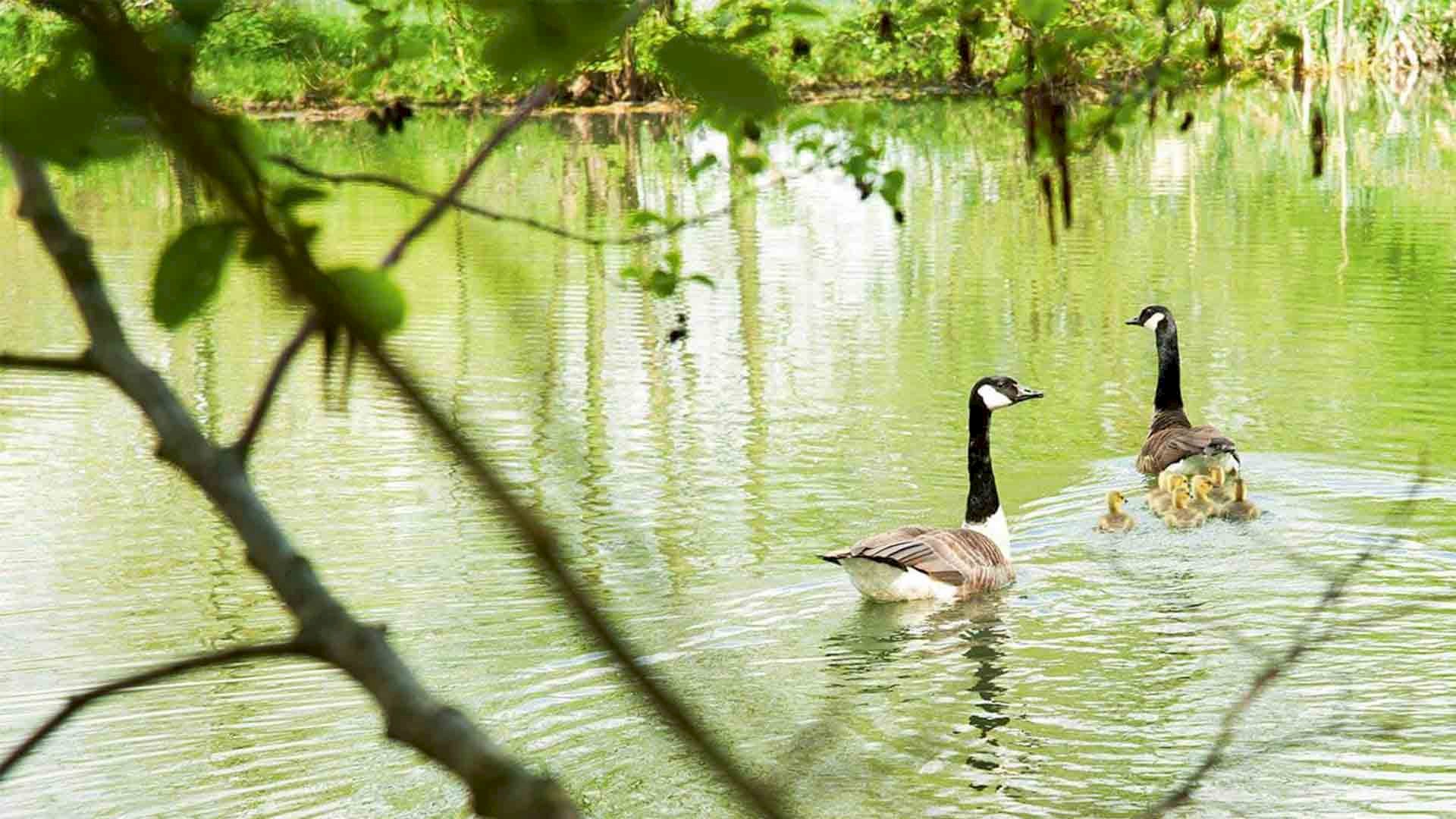
Concept of sustainability at Kanne
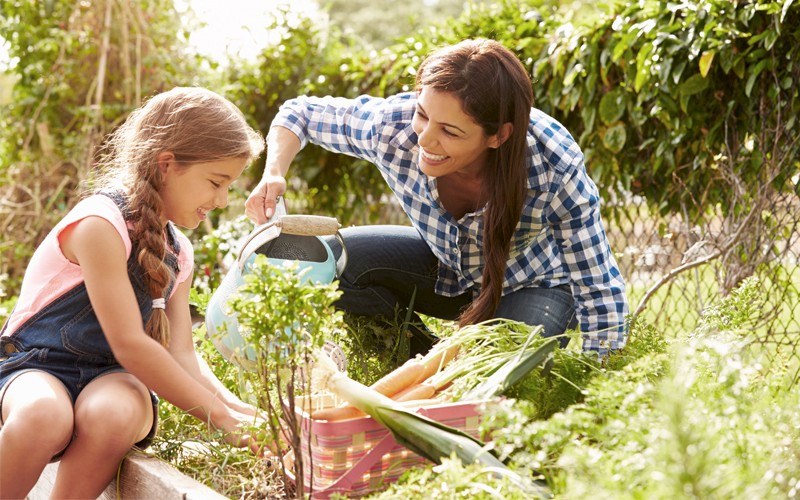
"The expression "in harmony with nature" has been an integral part of the vocabulary used at our company for as long as I can remember. Much more than just a flowery phrase, this expression is a reflection of our way of living and of running our business."
Wilhelm Kanne Jr.
Already shared with profound conviction by Wilhelm Friedrich Kanne more than 30 years ago, this philosophy and attitude towards life became the cornerstone of Kanne's current policy to promote sustainability.
The realisation that humans will not be able to survive unless they live in a healthy environment came to Wilhelm Kanne IV early on and became the driving force behind his efforts to protect nature and the environment. This understanding led him to advocate organic farming methods as early as 1983 by convincing a great number of farmers to switch to organic grain cultivation. Meanwhile, he also began devising plans on how to convert wind energy into electricity. The company has come a long way from its early efforts to protect the environment and is now pursuing a highly evolved "sustainability concept".
The company managed to set up a small wind power plant on the premises of the Kanne bakery as early as 1998. The initial idea behind this project was to feed the generated energy directly into the facility in order to, among other things, supply the pumps needed for the water circulation (surface water is returned within a natural recirculation system). The company was later able to replace this small plant with an 800 kW plant in 2009. In a separate effort, Kanne installed a photovoltaic system that delivers an output of 125 kW on the roof of their production facility in 2010. In 2014, the company managed to establish the direct feed of the generated energy. The wind and photovoltaic systems generate a combined output of renewable energy in the amount of approx. 1.2M kWh. Naturally, the production cannot be reduced to the times when the wind blows or the sun shines. After all, direct consumption of renewable energy amounts to nearly 650,000 kWh.
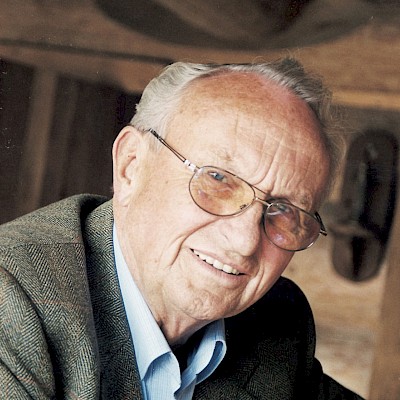
"While there are certainly places that are better suited to serve as installation locations for a wind turbine, our wind turbine serves our original intention very well as we wanted to produce energy in exactly the location where it is needed."
In 2014, a cooperation with Stadtwerke Lünen, the municipal utility company, allowed the company's bakery business in Lünen to switch from heating oil to natural gas. This switch, of course, also dictated the installation of the latest furnace technology. The bread drink operations in Selm-Bork completed the conversion to natural gas several years ago. The conversion of most of the company's ovens from fuel oil to electric heating, which the company accomplished in 2004, was another major milestone on the way to the exclusive use of renewable energy. The first step involved a significant reduction in fuel oil consumption (approx. 110,000 litres per year).
The new installation of the baking lines in 2004 was accompanied by the incorporation of a heat recovery systems into all operations. These systems allow for using the heat remaining in the ovens, the waste heat contained in the vapour steam and flue gases as well as the waste heat produced during the drying of the mash. This heat can then be used by steam and flue gas condensers to supply the power needed to heat up the water in the dishwashers. Since approx. 30 - 40% of the losses (vapour steam and flue losses) can be recovered, the primary use of heating oil / gas could be reduced significantly.
Energy management
The ovens set up in the Kanne bakery branches are designed to handle sequential peak times of operation. By equipping the ovens with a monitoring system that operates on a timer we were able to set up our ovens such that individual ovens which are not needed during times of low demand will be shut off automatically or not even be heated up. At present, this optimised energy consumption allows for savings of approx. 60,000 kWh or annual savings in cost of approx. €10,000.
We teamed up with the power consultants at Stadtwerke Lünen to systematically scour our branches for such "energy guzzlers" as old refrigerators and replace them with new appliances.
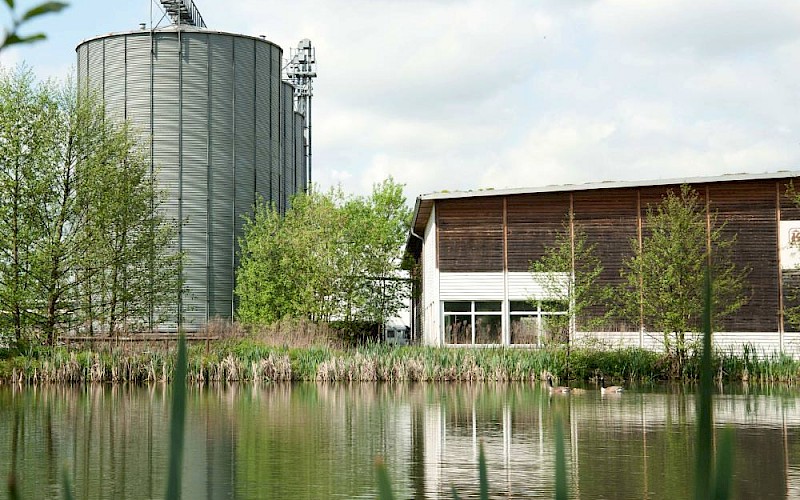
Water circulation
Both companies have their own dedicated water supply through wells and a spring. Instead of draining our entire surface water and the pure water of the bottle rinsing water (approx. 6500 m³ per year) into the sewage system, we use a 7-chamber system to filter the water before recycling it into the pond installations via natural gravel and reed beds.
The organic experimental nursery that is attached to the Kanne Brottrunk premises and that is used to demonstrate the effects of Kanne Bread Drink in the field of agriculture uses the water from these ponds to water their plants, re-feeding the water into the natural cycle.
Environmental protection
The company has planted over 800 fruit trees, hedges and shrubs on their premises in the course of the last 20 years. The baking hall in Bork was built with renewable home-grown timber and has green covering on the roof. Over the last few years, the company has created pond installations and biotopes that span an area of more than 10,500 sqm. Offering a natural habitat for aquatic birds and other animals, these ponds and biotopes provide for natural water circulation.
Management of the vehicle pool
Driving in a manner that is gentle on the environment is particularly beneficial to air quality and energy/fuel economy when you assume this driving style during short-distance trips. We have established driver's education classes that are specifically designed to educate drivers on environmentally compatible driving and on how smart route planning can be used to avoid unnecessary trips and to, thereby, cut down on energy consumption and cost.
Practised environmental protection is one of the cornerstones of the Kanne philosophy. In appreciation of this concept, Wilhelm Kanne was distinguished with the B.A.U.M. environmental award in 2001 and the Kanne company received the NRW Sustainability Award in 2014.


